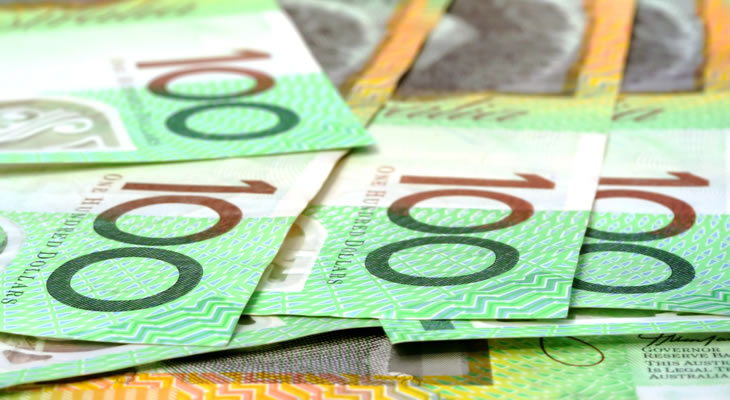Declining Westpac Consumer Confidence Dents Australian Dollar (AUD) Strength
After last night’s Westpac Consumer Confidence report showed that optimism within Australia has continued to retreat, from -0.8% to -3.5% in January, demand for the ‘Aussie’ (AUD) has softened once again. As a result the Pound Sterling to Australian Dollar (GBP/AUD) exchange rate has been making gains around 2.0648.
Earlier…
In spite of Chinese growth falling to a twenty-five year low, the Pound Sterling to Australian Dollar (GBP/AUD) exchange rate has slumped today.
Australian Dollar (AUD) Struggled to Shed Risk Aversion despite Solid Domestic Data
Following a stronger Australian TD Securities Inflation figure the ‘Aussie’ (AUD) made some sharp gains across the board on Monday, as the domestic economy continued to demonstrate signs of growth in spite of negative global headwinds. As this would seem to put less pressure on the Reserve Bank of Australia (RBA) to loosen monetary policy in the coming months, the antipodean currency strengthened in spite of falling oil prices continuing to drag on commodity values.
However, as the Pound (GBP) was shored up by a slowing Rightmove House Prices Index (which slipped from 7.4% to 6.5% on the year in January) the GBP/AUD exchange rate soon began to regain ground. With traders drawing the conclusion that some of Sterling’s recent decline had been the result of overselling the currency was bolstered further throughout yesterday’s European session.
Stronger UK Inflation Fails to Bolster GBP/AUD Exchange Rate after Dovishness from BoE’s Carney
The Australian Dollar has been on bullish form today, however, after China’s latest GDP figures showed that growth within the world’s second largest economy had slowed to its lowest level in twenty-five years. As pundits had largely been braced for this continued decline, markets were encouraged by the likelihood that fresh stimulus may be in the offing, consequently pushing commodity-correlated currencies higher.
While December’s UK Consumer Price Index bolstered demand for the Pound this morning, as baseline inflation rose on the year to 0.2% for the first time since the beginning of 2015, the positive impact of this data was soon muted. In comments at the University of London, Bank of England (BoE) Governor Mark Carney indicated that an interest rate rise in not likely to come for some time yet, although the policymaker refused to suggest any timetable for the central bank’s monetary tightening. As a result the GBP/AUD exchange rate has continued to downtrend strongly as investors are once again deterred from the Pound.
GBP/AUD Exchange Rate Forecast: Pound to Soften as UK Weekly Earnings Predicted to Slow
Tomorrow’s raft of UK employment data is not expected to offer any particular rallying point for Sterling, as the ILO Unemployment Rate is forecast to hold steady and Average Weekly Earnings are anticipated to have slowed further. Disappointment over the dovishness of the BoE is equally likely to weigh on the Pound over the coming days, although a resurgence in market risk aversion could still boost the GBP/AUD exchange rate.
Current GBP, AUD Exchange Rates
At the time of writing, the Pound Sterling to Australian Dollar (GBP/AUD) exchange rate was slumped around 2.0566, while the Australian Dollar to Pound Sterling (AUD/GBP) pairing was making gains in the region of 0.4860.


Comments are closed.